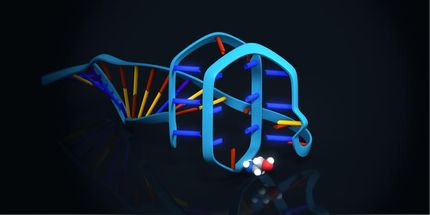november AG receives grant for BSE research
Advertisement
november AG, specializing in Molecular medicine, participates in BSE research with a new project. The Erlangen/Germany-based biotechnology company is listed on the New Market segment of the Frankfurt Stock Exchange. An international expert commission has recommended the company among other research institutions to receive a grant within the national TSE research network. TSE stands for "transmissible spongiform encephalopathies", which comprises all infectious sponge-like diseases of the brain, e.g. the new variant of human Creutzfeldt Jakob disease, scrapie with sheep or as well 'mad cow disease' (BSE).
Within the following years, the Federal Ministry of Education and Research (BMBF) will support the development of new diagnostic and therapeutic tools against TSE diseases by approximately 23 million DM. Of this sum, 8 million DM will go into TSE diagnostic research. november has projected total costs of approximately 2.5 million DM for its project running until 2004. The BMBF will support projects by grants of up to 50 percent.
In detail, the Frankonian biotechnologists are going to participate in the development of marketable techniques for the diagnosis of TSE. november will contribute with one of its core competences, the electrohybridization technique. For the detection of biomolecules, electrohybridization makes use of their specific properties like charge, conductivity or mutual recognition processes. Examples of such biomolecules are DNA as the carrier of genetic information or proteins. For DNA, november AG already employs this technology for the development of "Lab-on-a-Strip". Applications for this systems will be the detection of bacterial or viral infections at the point of care, e.g. the doctor's surgery or at the hospital. TSE research concentrates on certain proteins, called 'prions'. Infectious prions are believed to play an important role in the development of BSE as well as in subsequent brain destruction. The specific task for november will be to facilitate the detection of the TSE pathogen, for example by use of electrohybridization. Prions will be enriched electrochemically. By that the amount of infectious material necessary for diagnosis will be significantly reduced. This aims at the development of a reliable and cost-efficient test for application at the living animal. Thus, animals bearing BSE will be removed from the herd at an early stage. These detection techniques will be transferable to the early diagnosis of Alzheimer disease, which is also believed to be related to specific proteins.
Dr. Wolf M. Bertling, CEO of november AG: "We are very satisfied to have been selected for support in the first round of the Federal Ministry's program regarding innovative projects for TSE research. This underlines the high quality of our electrohybridization technique in which we have profound expertise at november AG."
Most read news
Topics
Organizations
Other news from the department science

Get the chemical industry in your inbox
By submitting this form you agree that LUMITOS AG will send you the newsletter(s) selected above by email. Your data will not be passed on to third parties. Your data will be stored and processed in accordance with our data protection regulations. LUMITOS may contact you by email for the purpose of advertising or market and opinion surveys. You can revoke your consent at any time without giving reasons to LUMITOS AG, Ernst-Augustin-Str. 2, 12489 Berlin, Germany or by e-mail at revoke@lumitos.com with effect for the future. In addition, each email contains a link to unsubscribe from the corresponding newsletter.






























































